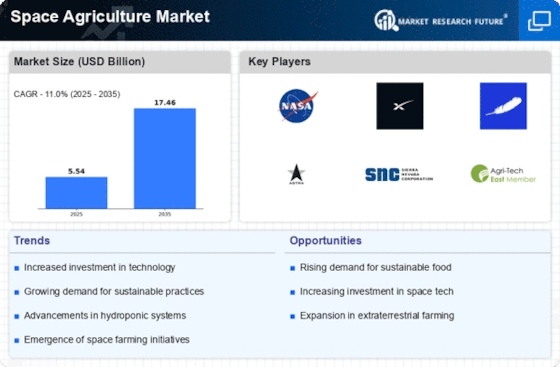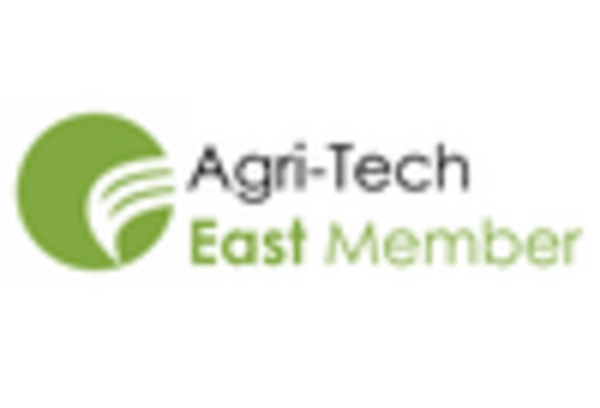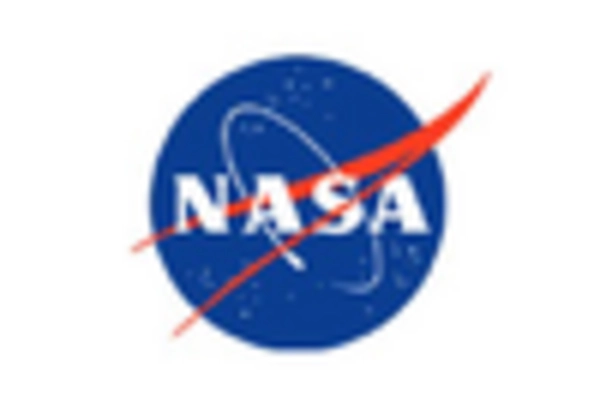Market Trends
Key Emerging Trends in the Space Agriculture Market
Space Agriculture market trends represent technological progress, growing environmental concerns, and rising interest in space exploration. One such prominent trend is opening up space environments for planting crops driven by space agencies organizations and private companies. This trend concerns maintaining space travellers nutritionally throughout extended space voyages or colonies on other planets. Self-cultivating systems in the space agriculture area and the development of various hydroponics & aeroponics system represent a great step forward in creating independent ecosystems beyond the Earth. Leading trends in the space agriculture market are largely driven by sustainability. Given the trend toward food security, and resource management issues, the idea of growing crops in space is gaining ground. Closed-loop systems utilizing recycled waste products to nurture plant growth are in accord with the principles of sustainable agriculture for space agriculture. The need to have ordered lives in the space environments, the effective use of resources, are all a model for the principles of sustainability, that can be directly applied and implemented here on our home planet. Another trend in space agriculture that is also apparent is innovation in the choice of crops. Besides, examining how different crops fare in microgravity and other space conditions aims at providing useful observations for terrestrial agriculture, helping to produce crop varieties more resistant to environmental pressures. In recent years, the integration of AI and robotics in space agriculture systems has been on the rise. By maintaining plant grown this way, such AI algorithms can fanatically control and adjust environmental factors boosting plant growth, changing important factors such as the light intensity, temperature, and nutrient-levels in real time. Precision-equipped robots can all help with planting, harvesting, and maintaining the plants. This trend makes space farming more efficient and it will open the door to more automation and smart farming technologies. International companies collaborating for a space farm include space agencies, research institutions, and private companies. A final point to recognize is that partnerships enable the pooling of expertise from aerospace engineering, biology, and agricultural science to address the very special problems that occur in growing things beyond our planet. These kinds of co-operations not only promote knowledge exchange, but also hastens the construction of space-ready agricultural systems. The development of space tourism is beginning to impact the market in space agricultural production. As private companies aim to make space travel more accessible to civilians, the need for sustainable food production in space becomes increasingly significant. The space agriculture market is adapting to cater to astronauts and space tourists who may embark on shorter spaceflights.


















Leave a Comment